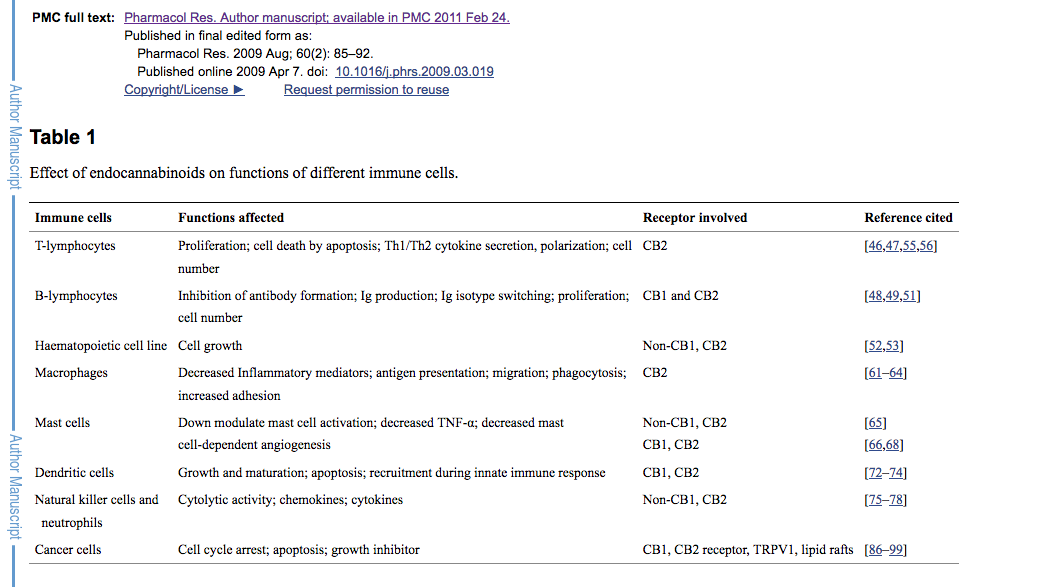Cannabinoid pharmacology has made leaps and bounds following the discovery of cannabinoid receptors. Research is finally exploring how cannabinoid signaling affects complex systems behind the immune system. While the main pharmacological functions of the endocannabinoid system includes neuromodulation, motor function, cognition, emotional responses, homeostasis and motivation, this system plays an important role in our nervous system, immune system and microcirculation.
The possible effects that endocannabinoids have, which include modulation of immune response in different cell types, induction of apoptosis in immune cells and down- regulation of immune response, suggest an incredible array of possible treatment modalities against inflammatory disorders. By ingesting cannabinoids or inhibiting the breakdown of endocannabinoids we produce ourselves, immunosuppressive treatments and recovery from immune-mediated injury to organs become available, and could offer a new treatment modality for auto-immune disease.
So how do endocannabinoids affect our immune system? Through special receptors. Cannabinoids like THC (tetrahydrocannabinol), CBD (cannabidiol), AEA (anandamide) and 2- AG bind to G-protein receptors called CB1 and CB2 located throughout our body. Both CB1 and CB2 receptors regulate the release of chemical messengers; where CB1 receptors are found mainly on neurons, pituitary gland, immune cells and reproductive tissues, CB2 receptors are found primarily on immune cells.
In certain disorders such as multiple sclerosis, cancer, intestinal disorders, cardiovascular disorders, and Parkinson’s disease, the tissue concentration of endocannabinoids, cannabinoid receptor density and the cannabinoid receptor coupling efficiency is variable, which can affect symptoms and efficacy of treatment. Immune cells express both CB1 and CB2 receptors, secrete endocannabinoids and have functional cannabinoid transport and breakdown mechanisms. CB1 receptors are dense in the central nervous system and mediate neurobehavioral effects, but the concentrations of CB2 receptors in immune cells are 10–100 times greater. That’s because the anti-inflammatory effects of CB2 activation with endocannabinoids helps the body fight many pathological conditions,disparate diseases and achieve homeostasis.
While early research indicated that the immunosuppressive effects of THC could be risky if ingested chronically, research suggests the effects of cannabinoids on immune function is transient, allowing the suppressive effects to be overcome when the immune system needs to be activated. What this possibly means, is that the transient nature of cannabinoids like CBD on the immune system could have minimal negative side effects as a potential therapy. There have been a number of recent studies which have demonstrated that the endocannabinoids have both inhibitory effects and stimulatory impact on the immune system and play a major role in homeostasis and control of our immune reactions.

SOURCE:
Endocannabinoids and immune regulation
DISCLAIMER: The information on this site is not intended or implied to be a substitute for professional medical advice, diagnosis or treatment. All content, including text, graphics, images and information, contained on or available through this web site is for general information purposes only. Always consult a doctor before making any health changes, especially any changes related to a specific diagnosis or condition.




